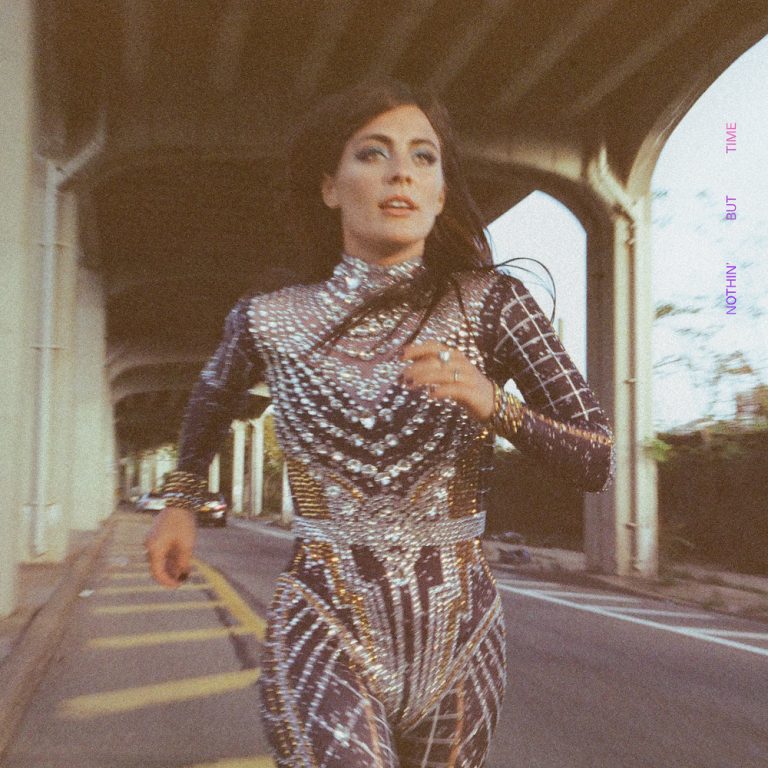For someone who named their album Nothin’ But Time, Breanna Barbara might very well be in a rush. At least, that’s how she appears on the album’s cover, mid-stride, her eyes fixed on something worth running toward. It’s a cinematic image fit for an album engrossed in atmosphere, evoking a blend of 1960s psychedelia, blues, and classic film score signifiers. But of course, nostalgia is best used to comment on the present, something the Florida-based musician does without hesitation.
Nothin’ But Time is an album about perspective; the ones you can’t see (“Diamond Light”), the ones you’ll never understand (“Nothin’ But Time”), the ones you finally grasp after intense internal reflection (“Old Soul”). Single and album opener “Diamond Light,” is a fun piece of surf/psychedelic rock that doubles as an overview of the album’s themes and Barbara’s approach. “‘Cuz I remember the look / Of his diamond eyes” she sings in the song’s chorus, a statement that feels like the foreshadowing of a darker tale to come. The silky smooth sway of “You Got Me High” marks gentle, if momentary, bliss that comes from finding what (or rather, who) you want. Unfortunately, reality hits hard on the somber “Exist” where quiet drums and sparse keys echo Barbara’s situation; “Chasing the dreams / That you told / Me exists.”
Nothin’ But Time is far from solely an introspective album. “I wanted to make a record that reflected what was going on in the world and outside of myself, while exploring my sound more,” Barbara explains. Her lyrics can be taken as a broader commentary on the power dynamic of heterosexual relationships. The album’s title track sees Barbara declare her waiting for her lover, though he comes off as an abstraction at best. She might have nothing but time, but he certainly does not.
“It’s a man’s world / That’s what they say / ‘Till all us woman / Goona take that away” she sings on the ominous blues track “Me Too”. The shuffling strings and sparse percussion evoke the threat that comes if men push women too far. Barbara is most direct on “Weight Of The World”, where she addresses the overturn of Roe v. Wade with declarations of personal autonomy. “My body, my choice / Go back to your church,” she exclaims before summing up her emotions through the song’s title. Her words emphasize how these choices, despite the warped perceptions of the far-right, are intensely personal and never easy. Tackling political themes in overt ways can come off as heavy-handed—on Nothin’ But Time, her approach mostly succeeds.
This is largely due to the atmosphere draped over the album. Here, listeners may feel more like they’re sharing her dreams. The rolling, incessant drumroll of “Weight Of The World”, accompanied by glistening sitar lines, makes listeners want to glide away. “Rise / Rise quick / If you don’t / You will sink,” she advises on “Rise”, a song with thumping percussion that evokes a train gliding along tracks. Yet the layering of Barbara’s biting vocals also reminds listeners that she’s here but maybe not here.
Album closer “Weaning” also explores these themes; a dramatic blend of organ chords and guitar strums opens up the song. Barbara soon enters, who sounds as wounded and desperate as ever. “Will you forgive what I have done / I am as selfish as they come,“ she sings, though the album’s context implies she might be carrying the weight of more than her own mistakes. Yet hope is not lost. Lines like “Run, as far as you can / Don’t look back,” serve a dual purpose; they’re a warning to the men who want to control as well as internal declarations of independence. These days, it’s easy to want to throw in the towel, to lose yourself in nostalgia or another world. But Barabara reminds us that’s no good conclusion, that we must use the time we have and stand up for ourselves.

